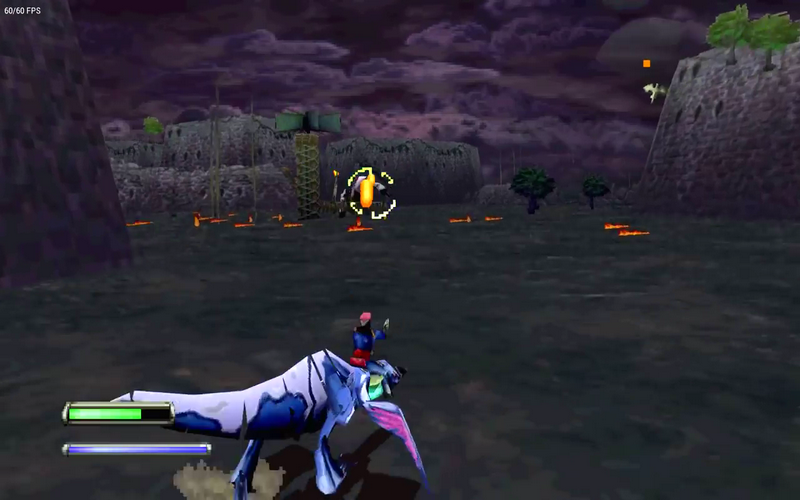

There's a modern control scheme that divides control between both sticks, with one moving the dragon you ride on and the other your aiming reticule, but while you're afforded a bit more direct control Panzer Dragoon simply isn't tuned for it - it's plain clumsy. It felt fantastic back then and it feels fantastic now, and the remake presents two different approaches to the action. Panzer Dragoon's lock-on system is similar to its successor Rez, utilising a satisfying scan and spray approach that has your reticule painting groups of enemies before they're disposed of in one brilliant barrage. It's an on-rails shooter, though such a throwaway description doesn't do justice to the lineage of on-rails shooter to which this belongs: this is a continuation of the form Sega made its own with the likes of Space Harrier and Afterburner, and would later reinvent in scintillating style with Rez. So, fundamentally, this is the same game. One of the few concessions to modernity is a photo mode, though it just goes to highlight that this remake isn't much of a looker. But it's important to emphasize the fan part of that equation, because this clearly comes from a place of passion, with the source material being treated with utmost respect. Instead this is the work of Polish publisher Forever Entertainment and developer MegaPixel Studio, both relative unknowns - which might be why this feels, more often than not, like a fanmade project, with cut corners and slim production values. It's a slightly odd proposition, with Sega and the original development team seemingly uninvolved.

This, though, goes back to the source for what is, for better and worse, a faithful retread of the original. There have been follow-ups and spin-offs - the RPG Panzer Dragoon Saga remains an all-time great, while Panzer Dragoon Orta, part of the fantastic wave of Sega games made for Microsoft's first Xbox, provided a muscular modern update and Xbox One launch title Crimson Dragon was a wonky but entertaining spiritual successor from series creator Yukio Futatsugi.

No wonder it lodged itself in players' imaginations, gaining a cult status that only seems to have grown in all the years since. It's a wonderfully alien place, where oversized insects scuttle under monumental pastel skies. Otherworldly would probably be a more elaborate way of putting it: Sega's 1995 original overcame the more limited technology of the Saturn to transport players to a faraway fantasy touched by Frank Herbert's Dune and Hayao Mayazaki's Nausicaä of the Valley of the Wind. A cult classic gets a fittingly strange remake whose patchiness can't obscure the original's brilliance.


 0 kommentar(er)
0 kommentar(er)
